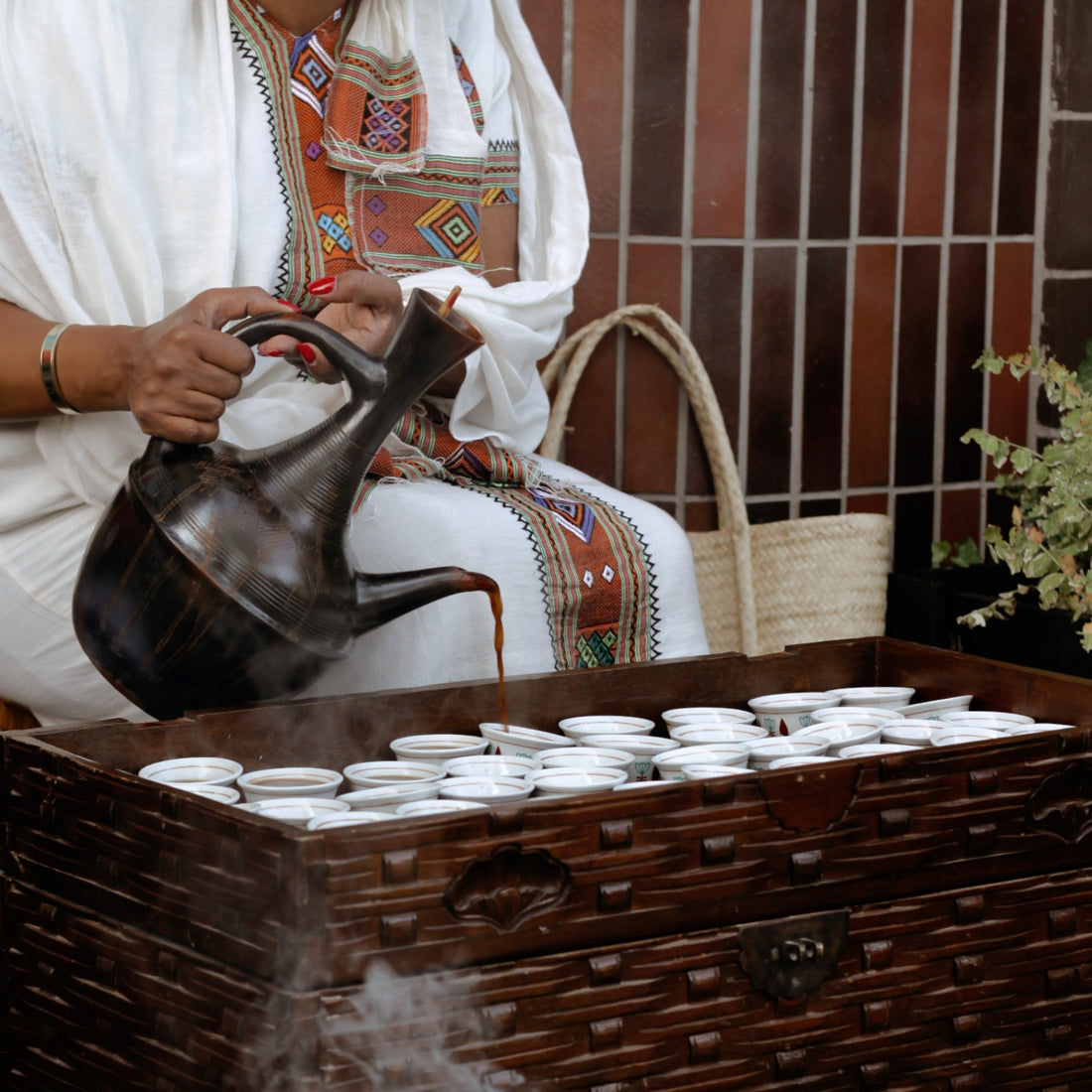
Ethiopia: the birthplace of coffee
Share

If you need to know anything about Ethiopian coffee, it’s that it’s there where coffee first originated. It is still in Ethiopia where coffee grows in the wild and many different varieties of coffee tree —many of them unknown to science— flourish in nature.
Ethiopia is an African country and the most populous landlocked country in the world. It is also a very diverse country, with many religions coexisting with one another as well 80 different ethnolinguistic groups— which means that there are about 80 different ethnicities, each with their language and culture.
Ethiopia has a very rich culture when it comes to coffee. There are several stories and myths regarding the discovery of coffee, and it is here where the Ethiopian coffee ceremony is performed.
Ethiopian coffee history

A lot of things have started in Ethiopia. It is believed that this is where the Homo Sapiens is originally from. The first written languages also originated in Ethiopia. But, most importantly, Ethiopia is where coffee is native to.
The stories are many. An Ethiopian (Oromo, to be more specific) myth tells of Waqaa, creator of all things, who had come down to earth to visit. During his stay there, he befriended a man— with the passage of time, the man died. Waqaa weeped at this tragedy, and where his tears fell, a coffee tree sprouted.
A more recent story is that of Kaldi, an Ethiopian goat herder. He took his goats out to pasture, in search of greener grass, until he found a nice hill. There, he spotted a coffee bush full of ripe berries yet did not eat them as he hadn’t seen them before. The goats, however, were not cautious and munched on the berries. They became energetic, playful, and Kaldi tried some himself: that’s how coffee was discovered.
Yet another story is that of a Sufi monk on a pilgrimage. He was to travel from Morocco (Northern Africa) all the way to the Middle East through Africa. Passing through Ethiopia, he found these strange berries and seeing as animals would eat them, he tried them too. He noticed the effects of caffeine and brought them home as he thought they’d be useful for enhanced meditation and praying.
It is believed that coffee has been grown for consumption in Ethiopia for more than ten centuries. And Ethiopia is, to this day, one of the best sources to get your coffee from. It has been an important producer since coffee became popular in the Middle East, then Europe, then the world, and today it is the seventh largest producer.
Ethiopian coffee ceremony


Ethiopia is also famous for its coffee ceremony. It’s actually practiced both in Ethiopia and Eritrea.
The ceremony is a social event that takes place in one household. The matriarch of the household will take it upon her to select the coffee (green coffee), roast it, ground it by hand, and brew it herself. She will invite various guests who attend the ceremony for the sole purpose of tasting the coffee.
The mother or matriarch takes care of the coffee. Several other women and girls are there to assist her and, in most cases, the men are in charge of accommodating the guests.
It is a social occasion as much as it is a celebration of coffee. In many cases, the woman will have picked the coffee cherries herself. She will then roast the coffee in a special, enormous pan. This inundates the house with a pleasant coffee smell, which is when the ceremony begins for the attendees— they will start praising the coffee’s aroma.
As the matriarch brews the coffee, she will give it out to her guests who will slowly savor the coffee and converse with each other about the taste of the coffee.
It is a very special ceremony in the world of coffee.
Ethiopian coffee
Ethiopia is a big country and so there are many different flavor profiles which originate here. Ethiopian coffee tends to be very rich in flavor, which is why it is one of the favorites, along with Colombian coffee, for making espresso.
In general terms, Ethiopian coffee has a very rich taste which is more often than not adorned with fruit-like tasting notes. It can be strong, but this is accompanied with a very intense flavor and aroma. In terms of acidity, it is usually in the medium-high spectrum.
Our Ethiopian coffee, for example, displays this fruity quality while also having exotic tasting notes like milk chocolate and caramel. It comes exclusively from smallholder farmers all in the Sidama zone, a region known for its coffee’s naturally sweet flavor and aroma.
Conclusion
The country where it all started. Even though Ethiopia is nowhere near the biggest producer of coffee, years after year it ranks in the top countries valued for the taste of their coffee. Which is no small feat, seeing as most of Ethiopia’s coffee is grown in small farms and estates!
But here, coffee is also about community. People worry about growing great coffee not just because it is a product to sell, but also because it is the pride of their country. And that sentiment is what makes Ethiopian coffee so great.

2 comments
Like
It has been said that TEA is the O.G. Of diplomacy and that coffee is the O.G. Of newspapers